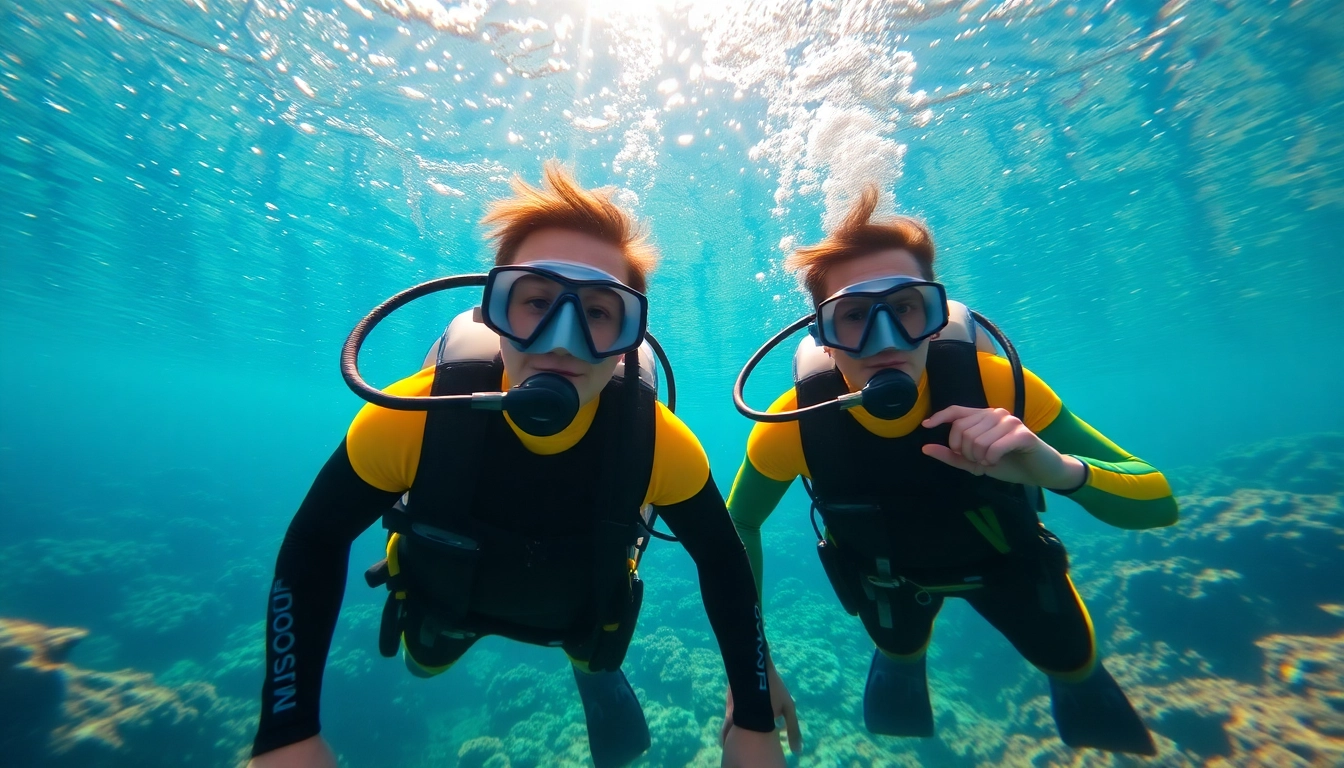Understanding the Bali Diving Course
Bali is renowned for its breathtaking underwater landscapes and vibrant marine life, making it a top destination for diving enthusiasts. If you are considering exploring the ocean depths, a Bali diving course is the perfect gateway. In this comprehensive guide, we will examine what you can expect from a diving course in Bali, the various levels, prerequisites for enrollment, and much more.
What to Expect from a Bali Diving Course
A Bali diving course offers a mix of theoretical knowledge and practical skills essential for diving safely and confidently. Participants can expect a structured program that includes classroom instruction, pool sessions for mastering basic skills, and actual dives in the ocean, supervised by certified instructors. The courses are designed to accommodate both beginners and experienced divers looking to enhance their skills.
Overview of Course Levels and Types
Bali diving courses typically range from beginner to advanced levels. Here’s a brief overview:
- Discover Scuba Diving: Ideal for first-timers, this course introduces the basics of diving and culminates in a guided open water dive.
- PADI Open Water Diver: This is the entry-level certification recognized globally. It includes theory lessons, confined water training, and four open water dives.
- Advanced Open Water Diver: For those who have completed the Open Water Diver course, this program allows divers to explore advanced techniques and specialties like deep diving and navigation.
- Rescue Diver Course: This course teaches divers how to prevent and manage dive-related emergencies, focusing on safety and rescue techniques.
- Specialty Courses: These courses are available for divers who wish to focus on specific areas, such as underwater photography, night diving, or wreck diving.
Who Can Enroll in a Bali Diving Course?
Bali diving courses are open to a wide audience. Generally, anyone aged 10 and above can participate in introductory courses, though prerequisites may vary depending on the specific dive center. Basic swimming skills and good health are essential, as well as a willingness to learn and adapt to new experiences.
Benefits of Taking a Bali Diving Course
Enrolling in a Bali diving course is not just about learning to dive; it offers numerous benefits that extend beyond the classroom!
Enhancing Your Skills and Confidence
One of the most significant advantages of participating in a diving course is the boost in skills and confidence. Learning under professional guidance allows you to acquire proper techniques and safety knowledge, encouraging proficiency in diving. Many divers report feeling empowered and self-assured after completing their courses, ready to explore the oceans independently.
Exploring Unique Marine Biodiversity
Bali is home to some of the world’s most diverse marine ecosystems. Enrolling in a diving course offers the unique opportunity to explore these underwater worlds, featuring colorful coral reefs, exotic fish, and other fascinating marine life. Diving experiences can create lifelong memories while also fostering a sense of responsibility for marine conservation.
Social and Networking Opportunities in Diving
Diving courses are an excellent way to meet like-minded individuals who share a passion for the ocean and adventure. Many divers find lasting friendships and networks while participating in group courses and diving trips, creating an enriching social experience in addition to the diving skills they acquire.
Preparing for Your Bali Diving Course
Preparation is crucial to ensure a safe and enjoyable diving experience. Here are some key points to consider before embarking on your diving adventure.
Required Gear and Equipment
Many dive centers in Bali provide rental gear for students enrolled in courses. Essential equipment typically includes:
- Mask and Snorkel
- Diving Wetsuit
- Regulator
- Buoyancy Control Device (BCD)
- Fins
While rental gear is convenient, some divers prefer to invest in their own equipment for comfort and hygiene. Be sure to check the quality of any rental gear and ask for a fitting before the dives.
Best Practices for Safety in Diving
Safety is paramount in diving. Here are some best practices to observe:
- Always dive with a buddy.
- Follow your instructor’s directives.
- Pay attention to your air supply and dive tables.
- Practice equalization techniques to relieve pressure in your ears.
- Do not ascend too quickly; follow the recommended ascent rates to avoid decompression sickness.
Health Considerations Before Diving
Before enrolling in a Bali diving course, it’s vital to assess your health and fitness levels. Certain medical conditions may disqualify you from diving, including:
- Asthma
- Heart conditions
- Severe allergies
- Recent surgeries
Consulting a healthcare provider familiar with dive medicine can help clarify any health concerns that may affect your diving experience.
Choosing the Right Bali Diving Course Provider
Not all dive operators are created equal. Choosing the right provider will significantly impact your diving education and overall experience.
Evaluating Certifications and Experience
Ensure that the diving center you choose is certified by recognized organizations such as PADI or SSI. Authentic certification guarantees that instructors meet specific professional standards in both instruction and safety. Additionally, look into the experience of the instructors; seasoned divers often provide deeper insights and hands-on learning experiences.
Understanding Course Curriculum and Instructors
Every dive school has a different curriculum for their courses. Research what is included, such as theory classes, types of dives, and safety training. Checking instructor-to-student ratios can also give insight into the level of attention and personalized instruction you can expect.
Comparing Prices and Packages
Diving courses in Bali may vary significantly in price depending on the package, duration, and inclusions. Consider what is provided with the course fee, such as equipment rentals, meals, or additional excursions. While it might be tempting to opt for cheaper options, ensuring quality and safety should take precedence over cost.
Advanced Opportunities in Diving after Your Bali Diving Course
Having completed a Bali diving course opens up a world of advanced opportunities in diving.
Specialty Courses in Diving
For divers who want to expand their expertise, many dive centers offer specialty courses. These courses often focus on specific skills, enabling divers to explore areas like:
- Wreck Diving
- Nitrox Diving
- Underwater Photography
- Deep Diving
Pursuing Divemaster Certification
For those looking to make a career out of their passion for diving, becoming a Divemaster is a key step. This certification allows divers to work in the industry, leading dives and assisting instructors. It will require additional training and experience, but it can lead to a fulfilling career path in dive tourism.
How to Dive Sustainably and Protect Marine Life
As divers, it is vital to recognize the responsibility we have in protecting marine ecosystems. Many Bali dive courses now include elements of environmental education, teaching divers how to engage in sustainable practices. Always follow these guidelines:
- Avoid touching or disturbing marine life.
- Do not collect shells or coral.
- Practice proper buoyancy to avoid damaging the reef.
- Participate in beach clean-up efforts and marine conservation initiatives.
By following these principles, divers can contribute to the health and preservation of Bali’s stunning underwater environments while enjoying the adventure of diving. Ultimately, taking a Bali diving course is not just about exploring the ocean’s depths; it’s about becoming part of a global community that cherishes and protects marine life.



